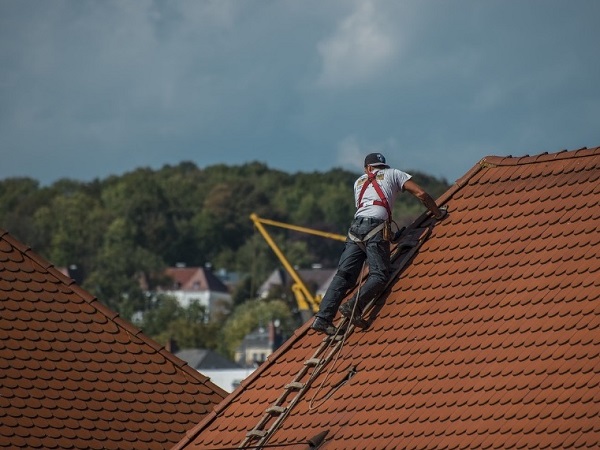Being an independent roofing contractor or owning a roofing company is not free from challenges. Not only must the job be exact and precise to ensure that the homeowner enjoys a safe and comfortable home, but tasks are often done in harsh weather conditions (under the blistering sun or when it’s windy) or dangerous working situations (high roofs and slippery tiles).
The margin of error is very small, and one misstep can cause significant bodily harm to you or your employees. In fact, roofing is considered to be one of the most dangerous jobs in America.

In order to protect yourself, your employees, and your business, it is a wise move to have a roofers insurance policy.
What is Roofers Insurance?
Roofers insurance is a special type of insurance policy that helps protect both the roofing company and its customers from any liabilities and subsequent legal costs that can arise from roofing jobs.
There are generally three ways that both the roofing company and its customers can benefit from roofers insurance. First, it covers the cost of injuries common in roofing. When you consider that roofers generally work in high places and uneven, possibly slippery areas, there is a high chance of bodily harm from slipping and falling.
Second, roofers insurance protects the homeowners or customers from liability claims from the company. Most accidents in roofing contracts occur on the homeowner’s property which means that without roofers insurance, a company can sue them for damages incurred while on their property.
Finally, it protects both the company and the homeowner by covering any property damage costs that arise from the roofing job.
Do I Really Need It, Though?
While there is no federal law that states that a roofing company must have roofers insurance to operate, most states will require you to have some sort of professional liability insurance in place before you are allowed to operate your business. Without this policy, you will not be allowed to work or even bid on a roofing contract job.
What’s more, homeowners are becoming savvier and more discerning when it comes to hiring a roofing company to work on their property. If you cannot produce an insurance policy that will also protect the homeowner during the roofing job, it decreases the chances of you getting hired.
What Types of Roofers Insurance Can I Get?
There are several types of roofers insurance that you can choose from, namely:
1. General Liability
This is the most common and affordable type of insurance that you can get for a roofing company. It covers bodily injuries and third-party property damages that can incur during a roofing job. Some instances might be:
- A shingle falls from the roof during repairs and hits the homeowner, causing injury
- Your worker accidentally steps on the roof gutter and detaches it
This insurance covers the costs to treat injuries as well as any repairs and replacements to the homeowner’s property.
2. Professional Liability
If your roofing company offers consultations or recommendations, this might be a good choice of insurance for you. Sometimes these recommendations don’t work out and it can result in loss or damages to your customer’s property. This type of insurance covers the costs of legal claims (which can soar astronomically if the homeowner has high-value property).
3. Worker’s Compensation
As mentioned above, roofing is a high-risk occupation and you need to protect your workers while they are on the job. Accidents can and do happen, and worker’s compensation insurance will cover medical costs related to injuries incurred during working hours. It also provides wages for these workers if they are unable to work due to their injuries.
4. Commercial Vehicle Policy
Since you will be regularly transporting workers as well as equipment, you need to protect your vehicles. This type of roofers insurance will cover the costs of maintaining and repairing vehicles used by your company.
5. Product Liability
If your company sells roofing-related products, you can purchase this type of roofers insurance to protect yourself from any liability claims that arise from customers who use these products if they are defective or do not deliver as promised.
If you have a large roofing business, you should consider getting a business owner’s policy. This type of roofers insurance will generally bundle together multiple types of coverage into one affordable and convenient package. It might be a bit more expensive, but you will definitely save time and money by purchasing this type of insurance as opposed to getting each policy individually.


